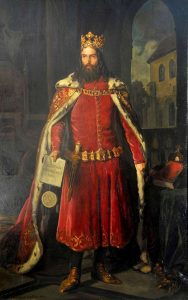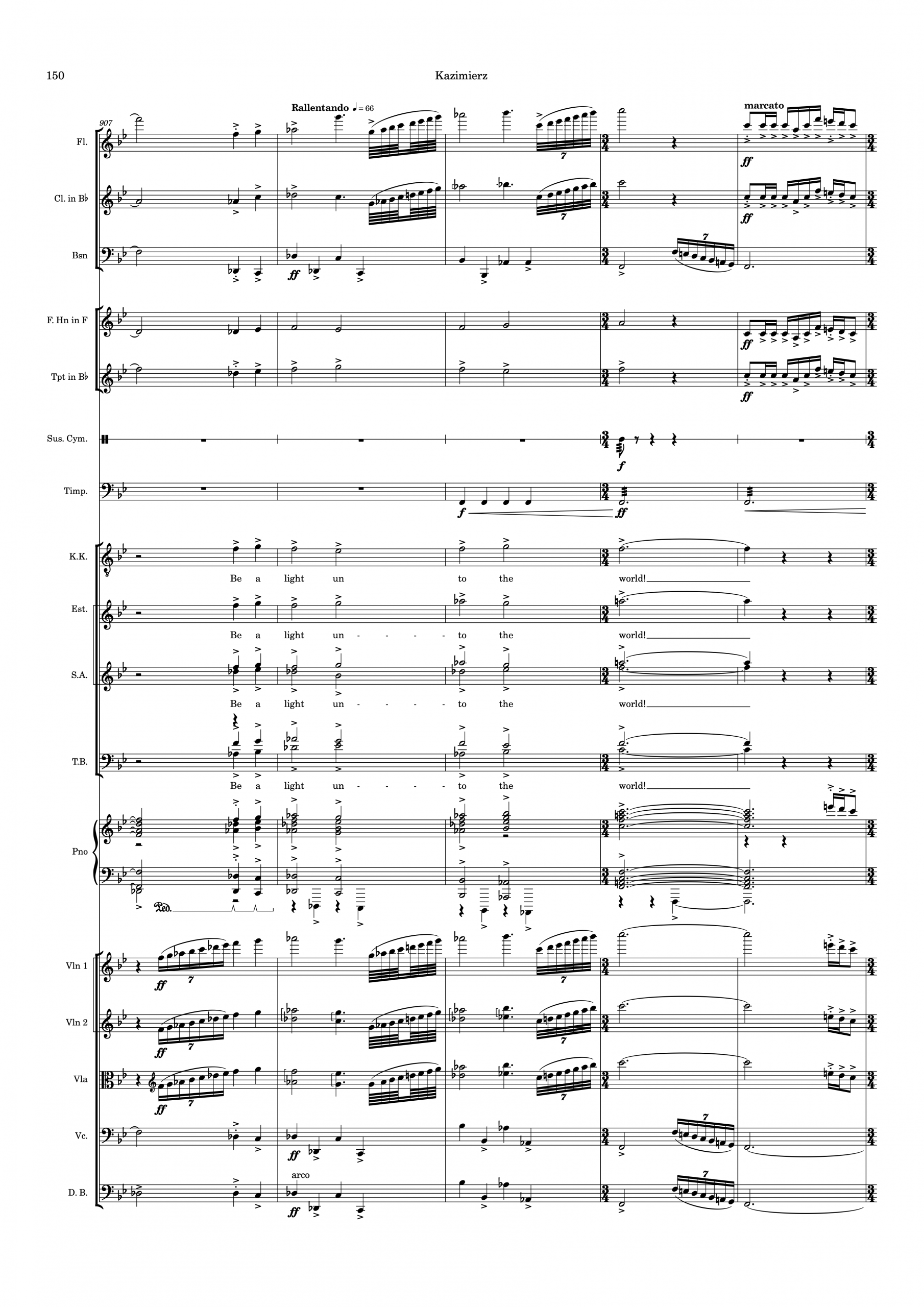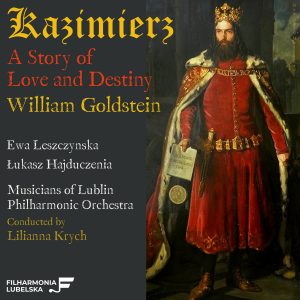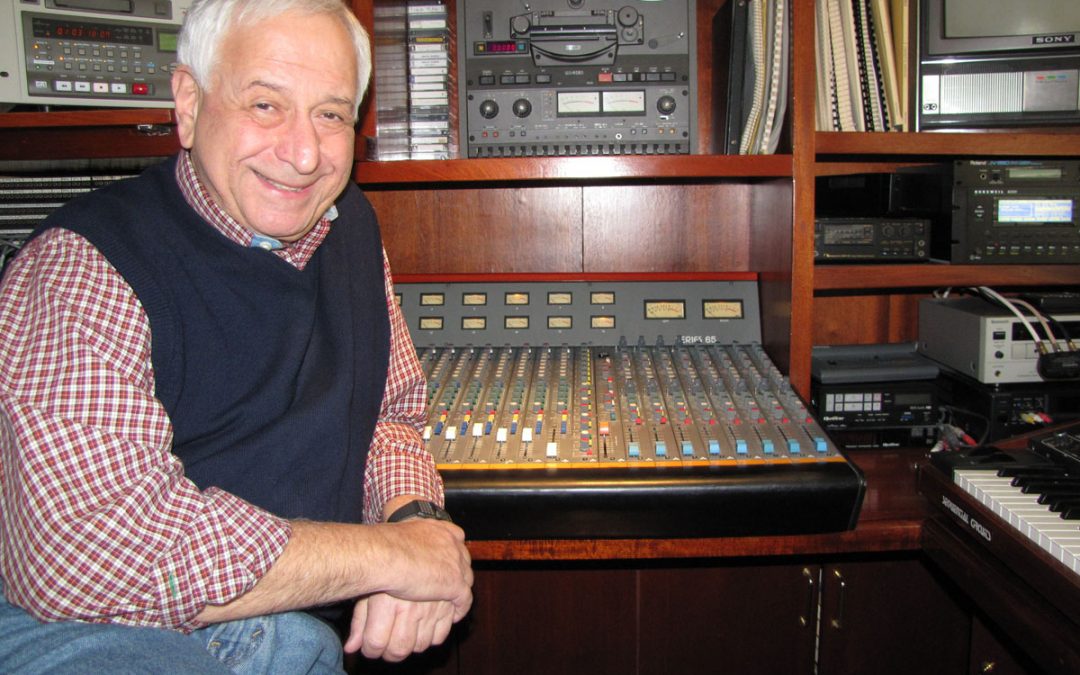William ‘Bill’ Goldstein is an Emmy-nominated composer, pianist, and improvisational artist best known for his work on the iconic 1980s television series Fame. A former recording artist for Motown and a prolific film and TV composer, he has created scores for major studios including MGM and NBC. Renowned for his rare gift of real-time composition, Bill can spontaneously create symphonic works and film scores at the piano. His music blends classical, jazz, and contemporary styles, and he has been a pioneer in digital music technology. Goldstein’s artistry continues to influence both traditional and improvisational music across multiple genres and platforms.
Bill has been a pioneer of technology for many years, as seen in this clip from an interview on Entertainment Tonight back in 1985, where he created the first score recorded on a PC for film or TV, OceanQuest. He also created the first score for a video game that was orchestral in nature, which was King’s Quest IV in 1987, and was an original beta tester for Finale.
In September 2024, Bill was exploring a transition from Finale to Dorico as he began writing a new one-act opera for the 2nd International Festival IMAGINE Culture Without Borders in Poland and was introduced to the Dorico team by Robin Lobel from our SpectraLayers team, as Bill had been using that software for several years.
Bill on Entertainment Tonight, 1985
JB: What first inspired you to tell the story of “Kazimierz: A Story of Love and Destiny”? Was there a moment or encounter that sparked the idea?
WG: In 2011, when I was president of the jury for the instant composition competition at the Transatlantyk Festival in Poznań, Poland, I was invited by Severyn Ashkenazi to visit the town of Kazimierz Dolny, which hosts an arts festival every summer. The founders and curators of the Festival are Prinzessin Irina zu Sayn-Wittgenstein, Elzbieta Chojnowska and Seveyn Ashkenazi. I believe this is when I first had the great pleasure of meeting Prinzessin Irina. As patrons of the arts, they have been looking to get me involved with the festival in a meaningful way. And over a year ago, Irina started talking to me about creating a work that would celebrate Kazimierz, the great Polish monarch for whom the city is named.
Gradually, the thinking evolved from creating a piece of music that would describe Kazimierz to actually telling the story. Hence, the idea of creating an opera which is to be performed annually at the festival. This year, it will premiere on August 14 in English. In the following years, it will be performed annually in a Polish translation. I’m of course hoping that the English translation will continue to have a life of its own. We have several days of recording planned after the performance. If all goes well, the recording will be released worldwide by early 2026.
JB: Can you share a bit about the narrative or emotional arc of the opera? What themes or historical elements are central to the story?

Kazimirez The Great. Portrait by Leopold Loeffler
WG: Fate works in mysterious ways. The title of the opera is Kazimierz, A Story of Love and Destiny.
King Kazimierz was the 14th-century Polish Monarch who modernised his country’s legal codes, elevated its international presence, founded the University of Krakow and changed the history and culture of Poland and the world by inviting the people of his beloved Esterka, the Jews, to come to Poland under the protection of his court. Over the centuries, this event helped Poland evolve into an even greater center of learning, education and culture.
I have never written a libretto before this project. But fate saw to it that I had an incredible, almost magical connection, which started January 20, 2024, at the concert I gave in Berlin, with an impressive young woman who dragged me into her life, and then threw me out six months later. During those six months, however, I was inspired to write poetry of a very philosophical nature, dealing with fate, destiny and love. So when this project was suggested, I felt truly qualified to tackle the subject. The libretto contains all of my philosophy of life, love, destiny, and fate. Therefore, it’s an immensely personal project.
JB: If my reading of your works list is right, you last composed an opera quite early in your career. After expanding your compositional horizons across so many forms—film, television, games, improvisation—how did returning to write an opera like “Kazimierz” challenge or expand your creative voice?
WG: My first professional success came when I was 22 years old and wrote a one-act folk opera, A Bullet for Billy the Kid (YouTube link). This work contained my first orchestrations, beautifully performed by members of the Philadelphia Orchestra. In this. I also wrote a one-act opera of 20 minutes duration that was performed at the Smithsonian Institute in Washington when I was serving as composer in residence for The United States Army Band, during the Vietnam War.
I’ve always liked musical theater and have written a couple of musicals intended for Broadway that never quite got there, although Haven, which starred Stephanie Block, who went on to star in Wicked, was produced in Los Angeles, and the performance can be seen on YouTube.
- Haven Act I: (YouTube link)
- Haven Excerpts: (YouTube link)
My work has been in film and recording my albums, and most recently, live performances. This opera project has given me the opportunity for the first time in many years to orchestrate a large project on my own without having to bring in orchestrators because of time pressures.
JB: You’ve described Dorico as an integral part of your recent process—how has it specifically shaped or influenced your work on “Kazimierz”?
WG: The ease of inputting and editing material in Dorico has clearly sped up the process. Whether it’s playing directly from my Midi keyboard a complex passage and then editing it, or inputting correctly, I found the process to be quite smooth.

Page 150 of the score of The Fable of Kazimierz
JB: This is your first project using Dorico. Do you have any words of advice or support for other people who are considering using Dorico?
WG: When I received word that Finale was no longer going to be supported, I knew it was time to move on. It was the first music notation software, and therefore had the oldest architecture and coding. It makes sense that newer programs would be more streamlined and more efficient in many ways.
Dorico improved and simplified many functions. For instance, Finale had voices and layers. Dorico simplified the ease of multiple voices and allows you to color-code those voices so you can actually see layers as well if you wish. There are multiple options for entering notes from the computer keyboard, more flexible than previously with Finale. Playing a passage live on a keyboard into Dorico gives you notation that is much more accurate and contains phrasing and other markings that are beyond what HyperScribe in Finale would provide. Then there’s the integration of sound samples into Dorico. It’s effortless. With Finale, you had to do a lot of assignments and integration and move various files into various folders to make things happen. Dorico installs all sound samples easily and automatically. For me, the composition process moved along much more quickly once I bit the bullet and learned this new, wonderful software!
JB: As someone with deep roots in both traditional composition and technology, how do you see modern tools like Dorico changing the role or experience of being a composer today?
WG: Writing on paper and pencil is very quick on the one hand, but you can’t transcribe live passages, copy, paste, easily transpose or produce beautiful-looking scores. This is all thanks to technology. And of course, the fun of hearing back what you’re writing while you’re writing is exciting and stimulating.
JB: Looking ahead to the August 2025 premiere in Poland, what are you most excited (or perhaps nervous) for audiences to experience in this work?

WG: I’m hoping for an excellent performance. Given the fact that there is never enough rehearsal time, I hope that it will come together quickly and will be well-received. This one-act opera is unusual in a lot of ways. One of which, no one dies, it’s inspiring, uplifting a wonderful love story with romance. Hopefully, audiences will find the melodies emotionally engaging and memorable.
JB: Thanks for your time, Bill, and I wish you all the best for the English-language premiere!
The 2nd International Festival IMAGINE Culture without Borders (II Międzynarodowy Festiwal Wyobraź sobie kulturę bez granic) runs 14–17 August 2025 in Kazimierz Dolny, Poland. The opening concert, Kaimierz, A Story of Love and Destiny by William Goldstein, is at 6pm on Thursday, 14 August 2025.
Admission to all concerts at the festival is free. Please visit CultureWithoutBorders.eu for details.

